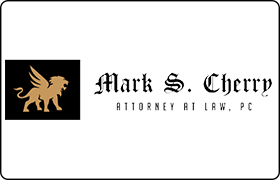Somerdale Reorganization Lawyer, New Jersey
Sponsored Law Firm
-
 x
x

Click For More Info:
-
Mark Cherry Law
385 Kings Highway North Suite 101 Cherry Hill, NJ 08034» view mapBankruptcy & Debt Where Every Client Matters
We want our clients to be confident and secure knowing we are a law firm ready to take on the fight and challenge with them.
800-824-6431
Not enough matches for Somerdale Reorganization lawyer.
Below are all Somerdale Bankruptcy & Debt lawyers.
Robert H. Johnson
✓ VERIFIEDBankruptcy & Debt, Foreclosure, Bankruptcy
Robert H. Johnson has spent his career representing clients in U.S. Bankruptcy Court and New Jersey insolvency proceedings. Prior to founding this fi... (more)
Robert N. Braverman
Foreclosure, Contract, Business Organization, Credit & Debt
Status: In Good Standing
FREE CONSULTATION
CONTACTMichelle H. Badolato
Banking & Finance, Bankruptcy Litigation, Corporate, Credit & Debt
Status: In Good Standing
FREE CONSULTATION
CONTACTGeorgette Miller
Bankruptcy & Debt, Bankruptcy, Bankruptcy Litigation, Bankruptcy & Debt
Status: In Good Standing Licensed: 24 Years
FREE CONSULTATION
CONTACTJoseph J. Rogers
Bankruptcy & Debt, Foreclosure, Real Estate, Traffic
Status: In Good Standing Licensed: 30 Years
Edward Wiercinski
Bankruptcy, Divorce & Family Law, Criminal, DUI-DWI
Status: In Good Standing Licensed: 29 Years
David Reinherz
Bankruptcy & Debt, Divorce & Family Law, Criminal, Immigration
Status: In Good Standing
FREE CONSULTATION
CONTACT Mark Cherry Cherry Hill, NJ
Mark Cherry Cherry Hill, NJ AboutMark Cherry Law
AboutMark Cherry Law Practice AreasSpecializations
Practice AreasSpecializations

